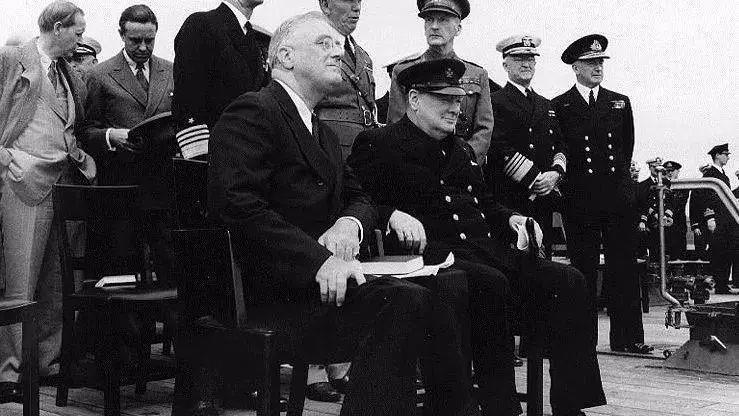As the largest and most widespread war in human history, during the Second World War, two influential political figures emerged: US President Roosevelt and British Prime Minister Winston Churchill. Their relationship was forged by blood and fire and forged a close friendship.

Churchill once joked that his encounter with Roosevelt was more enjoyable than opening a champagne bottle, and the correspondence between the two even reached more than two thousand! However, their relationship was tossed and turned, from close cooperation during the war to gradually drifting apart, and finally became a strange road. So, what changed their relationship?
I. The result of the special anglo-American relationship
The friendship between Roosevelt and Churchill was the result of the special relationship between Britain and the United States during World War II, and was influenced by the national interests of Britain and the United States.
The outbreak of World War II was an important opportunity for Britain to gradually decline, and the United States and the Soviet Union took advantage of the rise. At the beginning of World War II, the isolated Churchill wanted to protect Britain, so he chose to ask the United States for help and corresponded privately with Roosevelt, which led to this friendship of "secret communication".
However, by 1943, the situation of the war began to clear, and under the situation that the victory trend of the anti-fascist alliance was prominent, how to divide the interests of the post-war world became the core issue of Britain and the United States at that time.
Britain naturally wanted to maintain its political power status, but for Roosevelt at the time, he believed that the Soviet Union and the United States were the only post-war power entities.
Thus, on the eve of the Tehran Conference in November 1943, when Churchill was preparing for a private meeting with Roosevelt, he was rejected by Roosevelt.
Roosevelt was more willing to communicate with Stalin than Churchill.
One person in a threesome must be superfluous. During the tripartite talks, Stalin's speech to Churchill was full of gunpowder and aggressive, but Roosevelt did not give Churchill any help.
Roosevelt's estrangement from Churchie was the result of the United States trying to create a world divide between the two countries with the Soviet Union and Britain's attempt to step in.
Second, the difference in the concept of the two men
Although Roosevelt and Churchill shared many similar views, they also had many differences, and it was these differences that made them sow a rift in the relationship.
Although Britain and the United States shared the common goal of overthrowing fascism in World War II and coordinated operational operations, Roosevelt and Churchill often quarreled over strategic issues.
Among them, the most important dispute was the Eastern Problem: Roosevelt advocated using the main force in the Pacific Theater to fight the Japanese army, while providing assistance to China. Churchill, on the other hand, wanted the United States to open up a major battlefield in Europe and demanded that the United States abandon "China, which is bound to fail."
However, Roosevelt did not heed Churchill's persuasion, but insisted on going his own way, and in 1940 alone, he provided China with a $45 million war loan, contributing to the victory in the Eastern Theater. Churchill was, of course, very unhappy about this, especially after the Battle of Normandy in 1944, when the British wanted Britain and France to land from the south of France, but Roosevelt refused.
furthermore
As for the British colonial empire, Roosevelt, a progressive figure in the 1930s and 1940s, protested against British imperialism and fought with Churchill during World War II over the independence of India, but to no avail.
At the Yalta Conference in 1945, Roosevelt and Churchill had a "big fight", Roosevelt wanted to establish a global organization to solve international problems, but Churchill supported regional organizations. Coupled with many other factors, the two eventually ended up with Yalta.